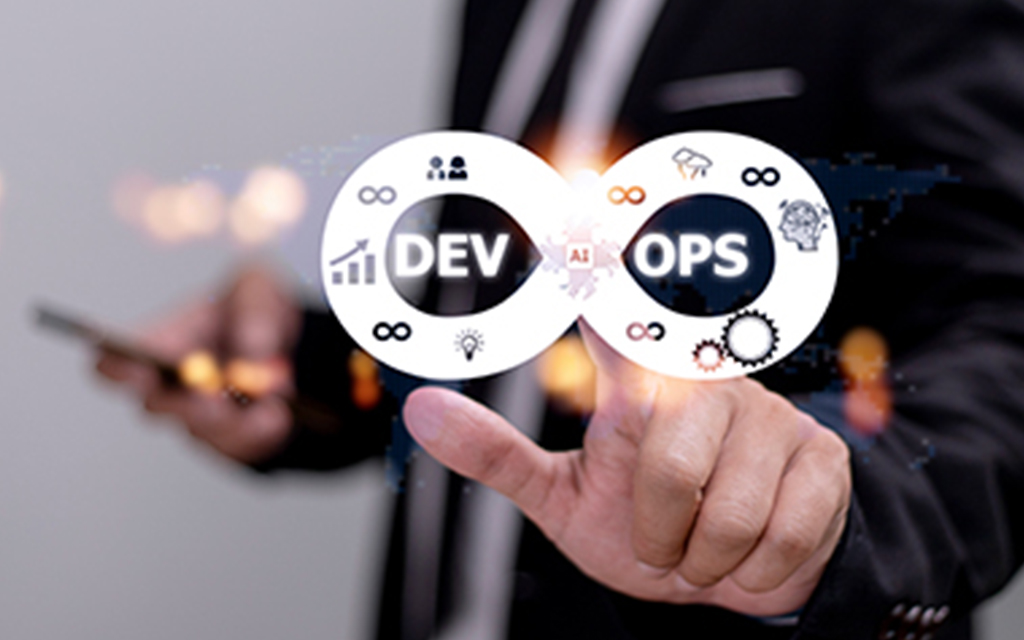The fact is that many organizations have access to transformative technologies, but they fail to embrace disruption and harness their potential. It’s mainly due to their inability to foster a collaborative environment where multiple teams and operating IT systems work together to achieve their objectives. Digital transformation is difficult to achieve without a solid foundation of infrastructure automation and well-selected team collaborations. A DevOps mindset is required for this. A company’s new value pools must be protected and transformed using DevOps practices.
Digital Transformation and DevOps
By triggering a paradigm shift in the business’s cultural mindset, breaking down silos, and driving continuous change and rapid experimentation, DevOps helps enterprises succeed with digital transformation.
Embedding DevOps into a digital transformation strategy has a number of benefits. There are two main benefits to using this methodology: it breaks down the silos between IT and business operations and ensures consistent productivity and service levels. As a result, companies’ time to market is impacted. As a second benefit, the automation of toolchains makes it much easier to fix bugs. This allows developers and IT professionals to spend more time on innovation instead of bug-fixing and firefighting.
Due to a lack of skills and the right tools, DevOps adoption in many industries is still slow. In the meantime, we’ll have to wait for the day when everything can be DevOps adoption has also been patchy, resulting in a two-speed overall technology environment: one part is fully integrated with DevOps, while the other part is still mulling over the “how” of tightly integrating it into the overall process of development.
Artificial intelligence and machine learning, for example, may be able to solve these problems. To help organizations transform at a faster pace through DevOps, they can reduce operational complexity. Here are some of the advantages that these technologies offer.
Advanced Automation
AI- and ML-based technologies can reduce the need for manual processes, which has a huge impact on data analysis. Artificial intelligence data mapping techniques can be used by organizations to automate data transformation processes with ease, efficiency, and speed. As a result, the process can be sped up, and the accuracy increases by leaps and bounds. Using another solution for AI integration, this transformed data can be easily integrated, making it easier for users to extract business intelligence and streamline decision-making. These steps take just a few minutes. As a result of the reduction in the need for manual intervention, developers who were previously tasked with handling transformation operations can now focus on more strategic tasks like governance and resource planning.
Enhanced Security with Intelligent Anomaly Detection
Highly precise AI and machine learning (ML) technology enhance system security and performance. As long as the team have access to a centralized logging architecture, they can record and investigate suspicious network activity. Together with DevOps, these technologies can help companies drive their digital transformation initiatives with precision by mitigating the impact of threats and hacker attacks.
Better Team Collaboration
There are two teams that work in harmony in any organization: the developer team, which is responsible for coding quickly, and the operations team, which is responsible for ensuring minimal disruption. However, transformative technologies such as AI and ML can help these two teams work in harmony, improving collaboration by giving them a unified view of system issues across the entire business ecosystem.
Better Customer Experience
Organizational productivity and performance are directly affected by AI-based technologies. Faster product development and launch with lower TCO is possible for them. Customers are more satisfied with services provided by DevOps-inspired service teams.
Conclusion
In order to kickstart DevOps performance and ultimately drive digital transformation initiatives, AI-powered technologies are essential. By utilizing AI, businesses can not only accelerate development and deployment cycles through automation, but they can also improve collaboration and uncover and fix key issues, allowing them to realize the full potential of digital transformations.


